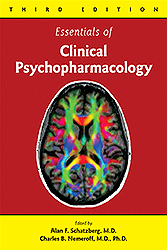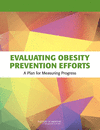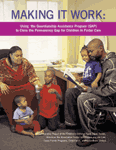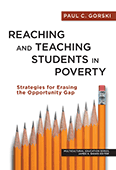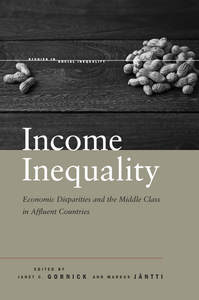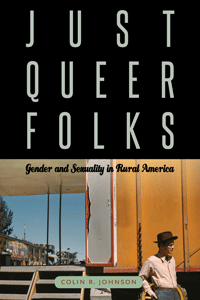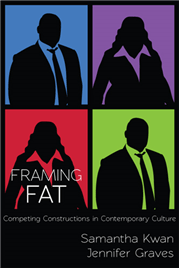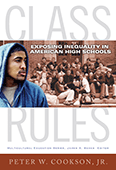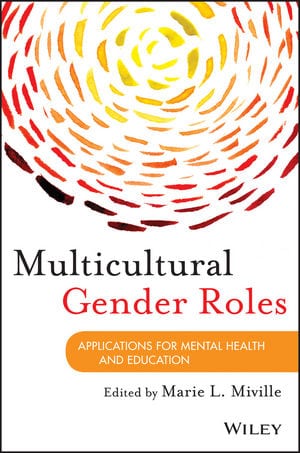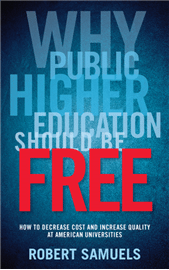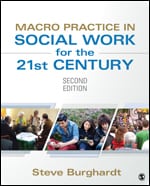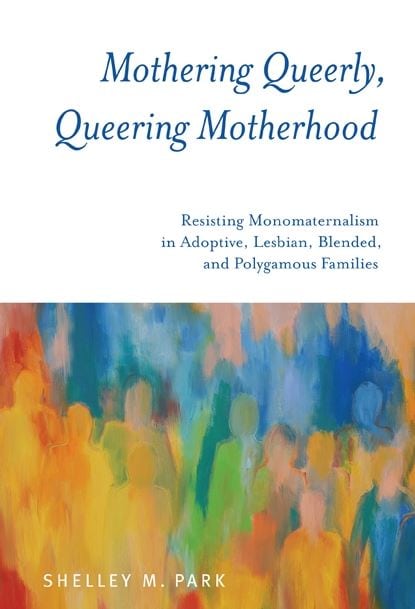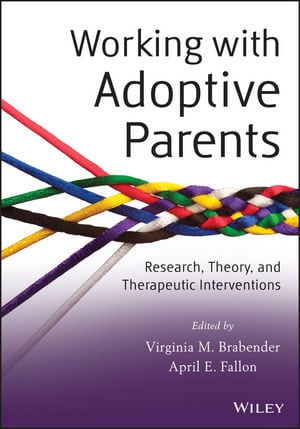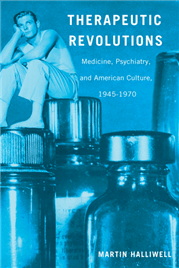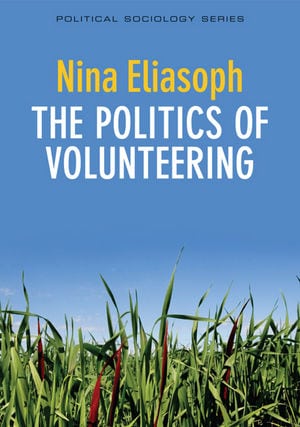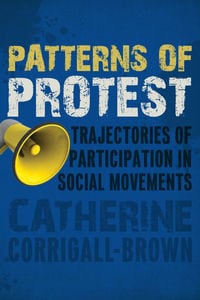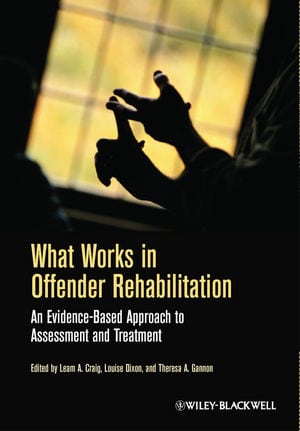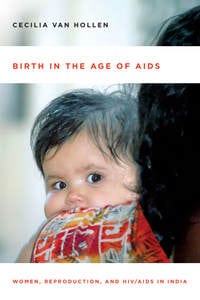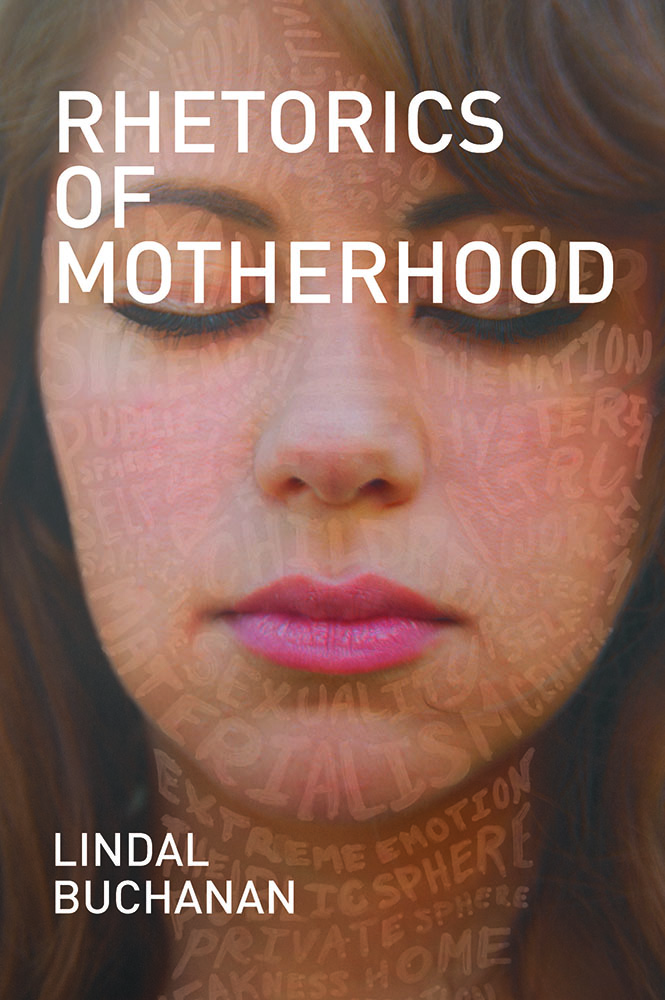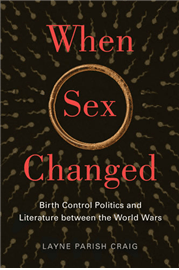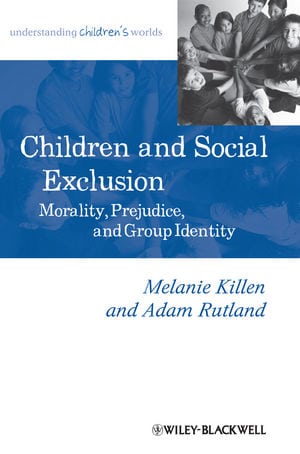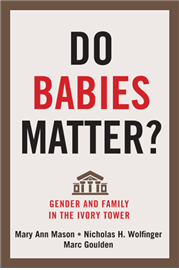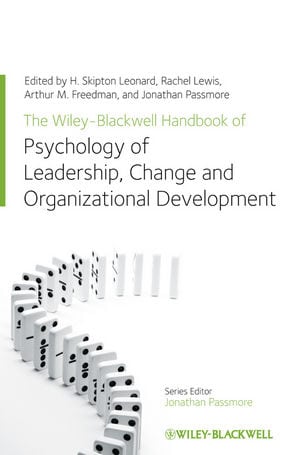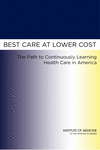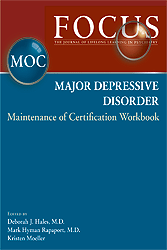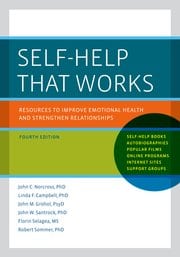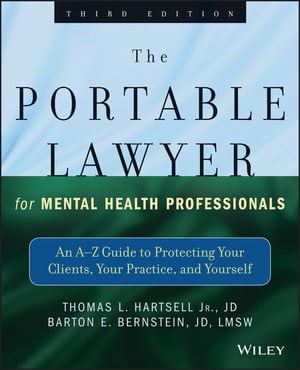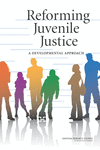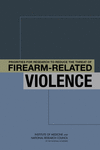This report is the fourth in a series on the health of Australia’s males. It continues and completes the life course by focusing on males aged 25 and over. Findings include:
– Males aged 25 and over in 2011 can expect, on average, to live to 80 or over
– One in 10 males aged 50-59 (11%) and 60-69 (10%) are, on a daily basis, at risk of injury resulting from excessive alcohol
– Employed males are less likely to rate their health as fair or poor (11%) compared with unemployed males (37%) and males not in the labour force (41%)
Essentials of Clinical Psychopharmacology, Third Edition
This new third edition of the Essentials incorporates the latest research and treatment advances and presents key information in an accessible and easy-to-use manner. The chapter authors are among the foremost national authorities in their areas of expertise, and the content has been thoroughly referenced and meticulously edited for maximum utility.
Evaluating Obesity Prevention Efforts: A Plan for Measuring Progress
Obesity poses one of the greatest public health challenges of the 21st century, creating serious health, economic, and social consequences. Despite acceleration in efforts to characterize, comprehend, and act on this problem, further understanding is needed on the progress and effectiveness of implemented preventive interventions.
“We Live in the Shadow”: Inner-City KidsTell Their Stories through Photographs
In Elaine Bell Kaplan’s perceptive book, at-risk youth were given five-dollar cameras to tell stories about their world. Their photos and stories show us their response to negative inner-city teen images. We follow them into their schools, and we hear about their creative coping strategies. While these kids see South Central as dangerous, they also see themselves as confident enough to not let the inner-city take them down. They refuse to be labeled as “ghetto thugs,” as outsiders sometimes do. These outsiders include police, teachers, and other groups representing the institutional voices governing their daily lives.
Making It Work: Using the Guardianship Assistance Program (GAP) to Close the Permanency Gap for Children in Foster Care
Reaching and Teaching Students in Poverty: Strategies for Erasing the Opportunity Gap
Income Inequality: Economic Disparities and the Middle Class in Affluent Countries
This state-of-the-art volume presents comparative, empirical research on a topic that has long preoccupied scholars, politicians, and everyday citizens: economic inequality. While income and wealth inequality across all populations is the primary focus, the contributions to this book pay special attention to the middle class, a segment often not addressed in inequality literature. The research also casts important light on how economic inequality affects and is affected by gender disparities, labor markets, institutions, and politics.
Just Queer Folks: Gender and Sexuality in Rural America
Most studies of lesbian and gay history focus on urban environments. Yet gender and sexual diversity were anything but rare in nonmetropolitan areas in the first half of the twentieth century. Just Queer Folks explores the seldom-discussed history of same-sex intimacy and gender nonconformity in rural and small-town America during a period when the now familiar concepts of heterosexuality and homosexuality were just beginning to take shape. Eschewing the notion that identity is always the best measure of what can be known about gender and sexuality, Colin R. Johnson argues instead for a queer historicist approach. In so doing, he uncovers a startlingly unruly rural past in which small-town eccentrics, “mannish” farm women, and cross-dressing Civilian Conservation Corps enrollees were often just queer folks so far as their neighbors were concerned. Written with wit and verve, Just Queer Folks upsets a whole host of contemporary commonplaces, including the notion that queer history is always urban history.
Framing Fat: Competing Constructions in Contemporary Culture
According to public health officials, obesity poses significant health risks and has become a modern-day epidemic. A closer look at this so-called epidemic, however, suggests that there are multiple perspectives on the fat body, not all of which view obesity as a health hazard. Alongside public health officials at the Centers for Disease Control and Prevention are advertisers of the fashion-beauty complex, food industry advocates at the Center for Consumer Freedom, and activists at the National Association to Advance Fat Acceptance
Gestalt Therapy Around the World
Transnationalizing Viet Nam: Community, Culture, and Politics in the Diaspora
Vietnamese diasporic relations affect—and are directly affected by—events in Viet Nam. In Transnationalizing Viet Nam, Kieu-Linh Caroline Valverde explores these connections, providing a nuanced understanding of this globalized community. Valverde draws on 250 interviews and almost two decades of research to show the complex relationship between Vietnamese in the diaspora and those back at the homeland. Arguing that Vietnamese immigrant lives are inherently transnational, she shows how their acts form virtual communities via the Internet, organize social movements, exchange music and create art, find political representation, and even dissent. Valverde also exposes how generational, gender, class, and political tensions threaten to divide the ethnic community.
Politics in the Age of Austerity
In a world of increasing austerity measures, democratic politics comes under pressure. With the need to consolidate budgets and to accommodate financial markets, the responsiveness of governments to voters declines. However, democracy depends on choice. Citizens must be able to influence the course of government through elections and if a change in government cannot translate into different policies, democracy is incapacitated. Many mature democracies are approaching this situation as they confront fiscal crisis. For almost three decades, OECD countries have – in fits and starts – run deficits and accumulated debt. As a result, an ever smaller part of government revenue is available today for discretionary spending and social investment and whichever party comes into office will find its hands tied by past decisions. The current financial and fiscal crisis has exacerbated the long-term shrinking government discretion; projects for political change have lost credibility. Many citizens are aware of this situation: they turn away from party politics and stay at home on Election Day.
Class Rules: Exposing Inequality in American High Schools
Class Rules challenges the popular myth that high schools are the “Great Equalizers.” In his groundbreaking study, Cookson demonstrates that adolescents undergo different class rites of passage depending on the social-class composition of the high school they attend. Drawing on stories of schools and individual students, the author shows that where a student goes to high school is a major influence on his or her social class trajectory. Class Rules is a penetrating, original examination of the role education plays in blocking upward mobility for many children. It offers a compelling vision of an equitable system of schools based on the full democratic rights of students.
College Girl: A Memoir
In College Girl, a university professor revisits the memory of a brutal sexual assault and recounts her long, circuitous route from trauma to recovery. Offering present-day reflections alongside the fresh, hopeful voice of the twenty-year-old student she once was, Laura Gray-Rosendale tells the story of her near destruction and her family’s disintegration, but also one of abiding friendships and shining hope. In the end, College Girl is also a story about stories, and a meditation on memoir itself.
Multicultural Gender Roles: Applications for Mental Health and Education
Psychodynamic Formulation
Constructing psychodynamic formulations is one of the best ways for mental health professionals to answer questions like these. It can help clinicians in all mental health setting understand their patients, set treatment goals, choose therapeutic strategies, construct meaningful interventions and conduct treatment.
Tell It Like It Is: Women in the National Welfare Rights Movement
Mary E. Triece brings to light a lesser known yet influential social movement of the late 1960s and early 1970s—the welfare rights movement, led and run largely by poor black mothers in the National Welfare Rights Organization (NWRO). Her study combines theory and critical analysis to explore rhetorical strategies and direct actions women employed as they argued for fair welfare legislation in both formal policy debates and in the streets. Triece focuses on how welfare recipients spoke for themselves in forums often marked by widely held stereotypes.
Between Skins: The Body in Psychoanalysis – Contemporary Developments
Why Public Higher Education Should Be Free: How to Decrease Cost and Increase Quality at American Universities
Samuels shows how research universities have begun to function as giant investment banks or hedge funds that spend money on athletics and administration while increasing tuition costs and actually lowering the quality of undergraduate education. In order to fight higher costs and lower quality, Samuels suggests, universities must reallocate these misused funds and concentrate on their core mission of instruction and related research.
Macro Practice in Social Work for the 21st Century, Second Edition
This project is a skills-based macro practice text for courses in social work community practice. The author has new interviews to draw on but will retain several of the original for variety, and he will walk the student through the career path of a macro practice practitioner. This book is different from other macro practice texts in that it is focused on building skills for effective practice through out the traditional macro social work career path. A key part of determining one’s path and place in practice is to reflect on their own personal values and mission and keep those values alive throughout their career. This book aims to do so by containing reflective exercises and activities through out.
Mothering Queerly, Queering Motherhood: Resisting Monomaternalism in Adoptive, Lesbian, Blended, and Polygamous Families
Bridging the gap between feminist studies of motherhood and queer theory, Mothering Queerly, Queering Motherhood articulates a provocative philosophy of queer kinship that need not be rooted in lesbian or gay sexual identities. Working from an interdisciplinary framework that incorporates feminist philosophy and queer, psychoanalytic, poststructuralist, and postcolonial theories, Shelley M. Park offers a powerful critique of an ideology she terms monomaternalism.
Working with Adoptive Parents: Research, Theory, and Therapeutic Interventions
Editors Virginia Brabender and April Fallon are clinical psychologists and also adoptive parents whose families are acquainted with both the uncertainty and joy of adoption. In Working with Adoptive Parents, they offer an in-depth treatment of the distinctive needs, feelings, impulses, expectations, and conflicts that adoptive parents experience through the stages of adoption and beyond. This volume offers a comprehensive picture of adoption through an exploration of the experiences and developmental processes of the adoptive parent.
Therapeutic Revolutions: Medicine, Psychiatry, and American Culture, 1945-1970
Therapeutic Revolutions examines the evolving relationship between American medicine, psychiatry, and culture from World War II to the dawn of the 1970s. In this richly layered intellectual history, Martin Halliwell ranges from national politics, public reports, and healthcare debates to the ways in which film, literature, and the mass media provided cultural channels for shaping and challenging preconceptions about health and illness.
Anxious Wealth: Money and Morality Among China’s New Rich
Who exactly are China’s new rich? This pioneering investigation introduces readers to the private lives—and the nightlives—of the powerful entrepreneurs and managers redefining success and status in the city of Chengdu. Over the course of more than three years, anthropologist John Osburg accompanied, and in some instances assisted, wealthy Chinese businessmen as they courted clients, partners, and government officials.
Why Europe Is Lesbian and Gay Friendly (and Why America Never Will Be)
Examines the differences in politics, policy, and culture in leading Western democracies and offers an explanation as to why lesbian and gay citizens in Europe reap more benefits of equality. This analysis of the political economy of care calls attention to the ways in which care is negotiated by various investors (the state, families, individuals, and the faith-based voluntary sector) and the power dynamics of this negotiation.
The Politics of Volunteering
In this engaging new book, Nina Eliasoph encourages readers to reflect on their own experiences in civic associations as an entry point into bigger sociological, political, and philosophical issues, such as class inequality, how organizations work, differences in political systems around the globe, and the sources of moral selfhood. Claims about volunteering tend to be astronomical: it will create democracy, make you a better person, eliminate poverty, protect local cultures, and even prevent illness. Eliasoph cuts through these assertions by drawing on empirical studies, key data, real-life case studies, and a range of theoretical analyses.
Why We Harm
Criminologists are primarily concerned with the analysis of actions that violate existing laws. But a growing number have begun analyzing crimes as actions that inflict harm, regardless of the applicability of legal sanctions. Even as they question standard definitions of crime as law-breaking, scholars of crime have few theoretical frameworks with which to understand the etiology of harmful action.
Patterns of Protest: Trajectories of Participation in Social Movements
Asked to name an activist, many people think of someone like Cesar Chavez or Rosa Parks—someone uniquely and passionately devoted to a cause. Yet, two-thirds of Americans report having belonged to a social movement, attended a protest, or engaged in some form of contentious political activity. Activism, in other words, is something that the vast majority of people engage in. This book examines these more common experiences to ask how and when people choose to engage with political causes.
The Latino Threat: Constructing Immigrants, Citizens, and the Nation, Second Edition
News media and pundits too frequently perpetuate the notion that Latinos, particularly Mexicans, are an invading force bent on reconquering land once their own and destroying the American way of life. In this book, Leo R. Chavez contests this assumption’s basic tenets, offering facts to counter the many fictions about the “Latino threat.” With new discussion about anchor babies, the DREAM Act, and recent anti-immigrant legislation in Arizona and other states, this expanded second edition critically investigates the stories about recent immigrants to show how prejudices are used to malign an entire population—and to define what it means to be American.
What Works in Offender Rehabilitation: An Evidence-Based Approach to Assessment and Treatment
Birth in the Age of AIDS: Women, Reproduction, and HIV/AIDS in India
Birth in the Age of AIDS is a vivid and poignant portrayal of the experiences of HIV-positive women in India during pregnancy, birth, and motherhood at the beginning of the 21st century. The government of India, together with global health organizations, established an important public health initiative to prevent HIV transmission from mother to child. While this program, which targets poor women attending public maternity hospitals, has improved health outcomes for infants, it has resulted in sometimes devastatingly negative consequences for poor, young mothers because these women are being tested for HIV in far greater numbers than their male spouses and are often blamed for bringing this highly stigmatized disease into the family.
Rhetorics of Motherhood
Becoming a mother profoundly alters one’s perception of the world, as Lindal Buchanan learned firsthand when she gave birth. Suddenly attentive to representations of mothers and mothering in advertisements, fiction, film, art, education, and politics, she became intrigued by the persuasive force of the concept of motherhood, an interest that unleashed a host of questions: How is the construct defined? How are maternal appeals crafted, presented, and performed? What do they communicate about gender and power? How do they affect women? Her quest for answers has produced Rhetorics of Motherhood, the first book-length consideration of the topic through a feminist rhetorical lens.
When Sex Changed: Birth Control Politics and Literature between the World Wars
Children and Social Exclusion: Morality, Prejudice, and Group Identity
Do Babies Matter? Gender and Family in the Ivory Tower
The new generation of scholars differs in many ways from its predecessor of just a few decades ago. Academia once consisted largely of men in traditional single-earner families. Today, men and women fill the doctoral student ranks in nearly equal numbers and most will experience both the benefits and challenges of living in dual-income households. This generation also has new expectations and values, notably the desire for flexibility and balance between careers and other life goals. However, changes to the structure and culture of academia have not kept pace with young scholars’ desires for work-family balance.
The Wiley-Blackwell Handbook of the Psychology of Leadership, Change and Organizational Development
Addressing the Intimacy Interests of People with Mental Health Conditions: Acknowledging Consumer Desires, Provider Discomforts, and System Denial
One does not have to inspect cultural norms too closely to conclude that it is a lifelong priority for both men and women to have a partner, spouse or significant other with whom to be sexually intimate. We see evidence of this drive for intimacy in the lives of everyone we know, and see it reflected as well on television, in popular movies, in the explosion of internet dating sites, and within most works of literature. The desire to enter into emotionally satisfying and sexually intimate relationships and to maintain such relationships underpins adult human experience. In fact, most people do sustain such relationships for much of their adult lives, and most routinely reflect on the quality of their relationships throughout the life cycle. Satisfying intimate relationships are considered highly relevant to overall health and mental health, for everyone.
The Posthuman
Offers both an introduction and major contribution to contemporary debates on the posthuman. Digital ‘second life’, genetically modified food, advanced prosthetics, robotics and reproductive technologies are familiar facets of our globally linked and technologically mediated societies. This has blurred the traditional distinction between the human and its others, exposing the non-naturalistic structure of the human. The Posthuman starts by exploring the extent to which a post-humanist move displaces the traditional humanistic unity of the subject. Rather than perceiving this situation as a loss of cognitive and moral self-mastery, Braidotti argues that the posthuman helps us make sense of our flexible and multiple identities.
The Mental Health Professional in Court: A Survival Guide
A successor to the popular The Psychiatrist in Court: A Survival Guide, The Mental Health Professional in Court has expanded the scope of the earlier book to include other professionals in the field. The authors have thoroughly updated the text, and provided a comprehensive coverage of legal processes. This book equips the mental health professional with a hands-on, practical working knowledge of what to expect—and how to survive—in the courtroom and the legal system.
Best Care at Lower Cost: The Path to Continuously Learning Health Care in America
America’s health care system has become too complex and costly to continue business as usual. Best Care at Lower Cost explains that inefficiencies, an overwhelming amount of data, and other economic and quality barriers hinder progress in improving health and threaten the nation’s economic stability and global competitiveness. According to this report, the knowledge and tools exist to put the health system on the right course to achieve continuous improvement and better quality care at a lower cost.
FOCUS Major Depressive Disorder Maintenance of Certification (MOC) Workbook
The FOCUS Major Depressive Disorder Maintenance of Certification (MOC) Workbook is a collection of practical and evidence-based materials to help psychiatrists develop and maintain a sound, up-to-date foundation of medical knowledge and clinical expertise, ultimately improving patient care. Designed to be a “one stop” resource to meet MOC requirements, the book aims to help psychiatrists assess their strengths and weaknesses in the diagnosis and treatment of patients with major depressive disorder, evaluate their knowledge and clinical skills, initiate a program of quality improvement, and advance their assessment, communication, diagnostic, and treatment skills.
Family Violence From a Global Perspective: A Strengths-Based Approach
Draws on the expertise of authors from 21 countries to tell the story of domestic violence in their country, and will include a personal case study of someone who has experienced domestic violence. The editors incorporate a strengths-based perspective, which includes individual, relationship, community, and societal strengths. The book blends academic, professional, and victims’ expertise to determine these strengths and analyze how they can translate into greater safety for victims and increased accountability for perpetrators, including improved policy formation and research.
Self-Help That Works: Resources to Improve Emotional Health and Strengthen Relationships
The Portable Lawyer for Mental Health Professionals: An A-Z Guide to Protecting Your Clients, Your Practice, and Yourself, 3rd Edition
Identifies, explores, and presents solutions to both the simple and complex legal questions that mental health practices must deal with daily. Written by Thomas Hartsell Jr. and Barton Bernstein—attorneys and therapists specializing in legal issues concerning mental health—this essential guide arms professionals with the expert knowledge needed to avoid a legal violation, or to know how to handle a situation if a complaint is filed.
The Pocket Guide to the DSM-5™ Diagnostic Exam
Designed for interviewers at all levels of experience, The Pocket Guide to the DSM-5™ Diagnostic Exam is the clinician’s companion for using DSM-5™ in diagnostic interviews. Both experienced clinicians and those still in training will benefit from the thoughtful, yet practical, fashion in which DSM-5™ revisions are reviewed and incorporated into the 30-minute diagnostic interview.
Reforming Juvenile Justice: A Developmental Approach
Adolescence is a distinct, yet transient, period of development between childhood and adulthood characterized by increased experimentation and risk-taking, a tendency to discount long-term consequences, and heightened sensitivity to peers and other social influences. A key function of adolescence is developing an integrated sense of self, including individualization, separation from parents, and personal identity. Experimentation and novelty-seeking behavior, such as alcohol and drug use, unsafe sex, and reckless driving, are thought to serve a number of adaptive functions despite their risks. Research indicates that for most youth, the period of risky experimentation does not extend beyond adolescence, ceasing as identity becomes settled with maturity. Much adolescent involvement in criminal activity is part of the normal developmental process of identity formation and most adolescents will mature out of these tendencies. Evidence of significant changes in brain structure and function during adolescence strongly suggests that these cognitive tendencies characteristic of adolescents are associated with biological immaturity of the brain and with an imbalance among developing brain systems. This imbalance model implies dual systems: one involved in cognitive and behavioral control and one involved in socio-emotional processes. Accordingly adolescents lack mature capacity for self-regulations because the brain system that influences pleasure-seeking and emotional reactivity develops more rapidly than the brain system that supports self-control. This knowledge of adolescent development has underscored important differences between adults and adolescents with direct bearing on the design and operation of the justice system, raising doubts about the core assumptions driving the criminalization of juvenile justice policy in the late decades of the 20th century.
Priorities for Research to Reduce the Threat of Firearm-Related Violence
In 2010, more than 105,000 people were injured or killed in the United States as the result of a firearm-related incident. Recent, highly publicized, tragic mass shootings in Newtown, CT; Aurora, CO; Oak Creek, WI; and Tucson, AZ, have sharpened the American public’s interest in protecting our children and communities from the harmful effects of firearm violence. While many Americans legally use firearms for a variety of activities, fatal and nonfatal firearm violence poses a serious threat to public safety and welfare.
Social Welfare in East Asia and the Pacific
In this singular collection, indigenous experts describe the social welfare systems of fifteen East Asian and Pacific Island nations and locales. Vastly understudied, these lands offer key insight into the successes and failures of Western and native approaches to social work, suggesting new directions for practice and research in both local and global contexts.
Happy-People-Pills For All
Self-Observation in the Social Sciences
Notwithstanding the mythical demise of “introspection,” self-observation has always been an integral aspect of the social sciences. In the century following the “behavioral revolution,” psychology has seen a reduction not so much in the frequency as in the rigor with which self-observation is practiced. A great deal of self-observation has been renamed or obscured (as, for example, “self-report”), but this has served only to defer and impoverish important theoretical and technical work.

